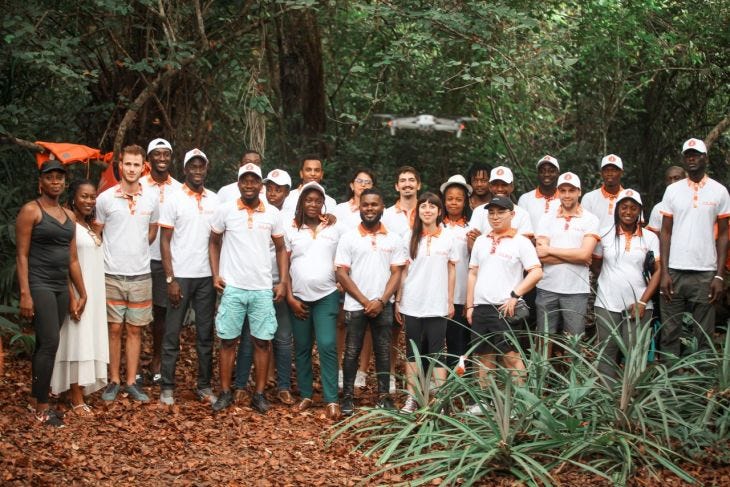Payment solution Julaya, which is based in Ivory Coast and focuses on payments, has raised an additional $5 million in a pre-Series A round of funding. The company has raised a total of $7 million in the fundraising round to support its mission of facilitating business-to-business (B2B) payments for companies in Francophone West Africa, primarily using mobile money channels.
The pre-Series A expansion round for Julaya was headed by the European VC firm Speedinvest. Investors included new entrants EQ2 Ventures and Kibo Ventures as well as current investors Orange Ventures, Saviu, 50 Partners, Ivorian business angel Mohamed Diabi, and professional football star Édouard Mendy. Additionally, Julaya received funding from its CFO and country manager in Senegal.
Read also Nigerian Fintech Startup TAP Raises $3M Seed Funding To Expand
This investment round will support the fintech in its expansion aspirations across Francophone West Africa, as it intends to create offices in Benin, Togo, and Burkina Faso, add talent, and increase product development, including the launch of a loan product aimed at 200,000 SMEs in the UEMOA area.

Why The Investors Invested
The startup has gained significant traction. CEO Mathias Léopoldie said in July 2017 that the fintech company processed more than $1.5 million weekly. These figures have multiplied by five to over $7.5 million, and revenues have surged by nearly 500% annually. Julaya’s clientele includes companies like Jumia and Sendy.
Enrique Martinez-Hausmann, principal at lead investor Speedinvest, stated that the firm’s portfolio company is altering how businesses work in the complicated payment ecosystem in Francophone, which includes well-known firms like CinetPay and Bizao.
Read also Africa-focused Blockchain Payments Startup Bitmama Raises $2M Pre-seed
“As we look ahead, the potential for Julaya’s technology goes far beyond its payment capabilities, having the opportunity to become a close banking partner for companies in West Africa,” Martinez-Hausmann said.
A notable observation from the news is the amount of athletes who are limited partners in the company; some have also reportedly made direct investments.
“I think he’s a bit ahead of the curve. We see that football stars, or high-net-worth individuals in the sports industry, are starting to see that they need to invest in venture capital for two reasons. The first one is that even though it’s a risky asset, it brings great returns. And second, they need to use their image to show that they don’t only care about their sports career but want to be an inspiration to their home country. It was meaningful for Édouard Mendy because he’s Senegalese,” founder Léopoldie said.
A Look At What The Startup Does
Founded in 2018, the Julaya platform allows small to big firms to make bulk payments to other businesses and their unbanked staff using current mobile money channels. However, they may now access additional services, such as the startup’s Mastercard-issued prepaid card for corporate cost management. According to CEO Mathias Léopoldie, the cards are customised for businesses’ travel needs, other internet spending, and the simple importation of transactions into their accounting systems.
“Our sense or strategy with the cards is to provide a full range of service. Because if you have just cards, I don’t think you could build a great startup with a lot traction as you would like, for example, in the U.S.,” said the chief executive, who created the firm alongside Charles Talbot. “The card payment industry, except for South Africa, maybe Nigeria and a little bit in Egypt, is a developing one and while you might be able to grow a business on that, it’s almost impossible in our region [Francophone Africa].”
Léopoldie said that selling actual cards to clients is not Julaya’s core revenue-growth plan. It’s a switching cost approach that separates the fintech from YC-backed competitors, who see cards as the major driver.
Read also AfDB to Establish African Pharmaceutical Technology Foundation
Julaya’s 500 small business owners, startups, major corporations, and government organisations employ its corporate spending management feature. The fintech has witnessed more acceptance from conventional and non-digitized small clients, said Léopoldie.
The Ivorian-French business has added a “Cash & Collect” solution that permits fast and secure cash collection, notably in FMCG. Businesses can deposit cash from physical and field sales into their Julaya account via a mobile money agent branch.
West Africa has 56 million active mobile money accounts in 2019. 75% of Ivory Coast’s population has a mobile money account, compared to 20% who have bank accounts. Julaya debuted its services in the west African country and has since extended to Senegal, where mobile market penetration is approximately 80%, and other UEMOA countries with common mobile money usage.
Julaya payment Julaya payment
Charles Rapulu Udoh

Charles Rapulu Udoh is a Lagos-based lawyer, who has several years of experience working in Africa’s burgeoning tech startup industry. He has closed multi-million dollar deals bordering on venture capital, private equity, intellectual property (trademark, patent or design, etc.), mergers and acquisitions, in countries such as in the Delaware, New York, UK, Singapore, British Virgin Islands, South Africa, Nigeria etc. He’s also a corporate governance and cross-border data privacy and tax expert.
As an award-winning writer and researcher, he is passionate about telling the African startup story, and is one of the continent’s pioneers in this regard. You can book a session and speak with him using the link: https://insightsbyexpert
